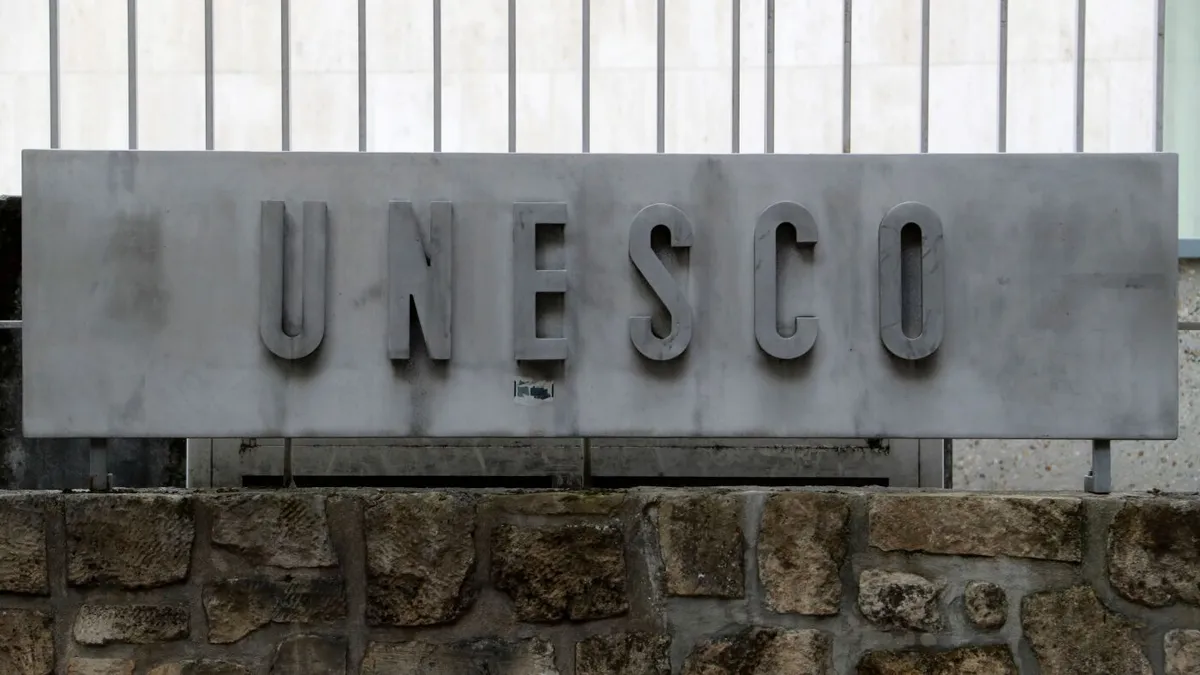
The Trump administration has announced its decision to withdraw the United States from the United Nations Educational, Scientific and Cultural Organization (UNESCO). This move comes approximately two years after the U.S. rejoined the agency under President Biden. UNESCO is renowned for its efforts in promoting international collaboration in education, science, and culture, and is perhaps best known for its prestigious list of World Heritage sites. These sites are recognized for their cultural or natural significance, drawing attention to important global landmarks.
On Tuesday, U.S. State Department spokesperson Tammy Bruce stated that continued involvement in UNESCO is not aligned with the national interest of the United States. Bruce accused the U.N. agency of promoting divisive social and cultural agendas that do not reflect American values. In response to the impending withdrawal, UNESCO's Director-General, Audrey Azoulay, expressed disappointment, noting that the decision was expected. Azoulay emphasized that this withdrawal contradicts the principles of multilateralism and could adversely affect numerous partners within the United States, particularly those seeking site inscription on the World Heritage List, Creative City status, and University Chairs.
UNESCO currently boasts 194 member states and manages more than 1,200 World Heritage sites, 26 of which are located within the United States. These include iconic locations such as the Statue of Liberty, Yosemite National Park, and Grand Canyon National Park. Being listed as a World Heritage site opens doors to international funding aimed at protection and conservation efforts. The withdrawal could hinder ongoing and future initiatives to preserve these culturally significant sites.
Among the reasons cited by Bruce for the withdrawal is UNESCO's emphasis on the U.N.'s sustainable development goals, which encompass tackling poverty, hunger, promoting gender equality, and advancing clean energy initiatives. According to Bruce, these goals represent a globalist agenda that conflicts with the America First foreign policy. Additionally, Bruce highlighted the Trump administration's longstanding objection to UNESCO's decision to admit the state of Palestine as a member back in 2011. She characterized this move as problematic and contrary to U.S. policy, asserting that it has contributed to a rise in anti-Israel rhetoric within the organization.
This marks not the first instance of the U.S. withdrawing from UNESCO under a Republican administration. In 2018, during President Trump’s first term, the U.S. exited the organization over similar concerns regarding perceived anti-Israel bias. However, in 2023, the Biden administration took steps to rejoin UNESCO, committing to pay over $600 million in outstanding dues. The decision to include Palestine as a member has consistently sparked debate, with the Obama administration also cutting funding in response to this controversial admission.
As the U.S. prepares for its withdrawal from UNESCO, the ramifications of this decision will likely resonate across the international stage, impacting not only cultural preservation efforts but also the U.S.'s role in global educational and scientific collaboration.